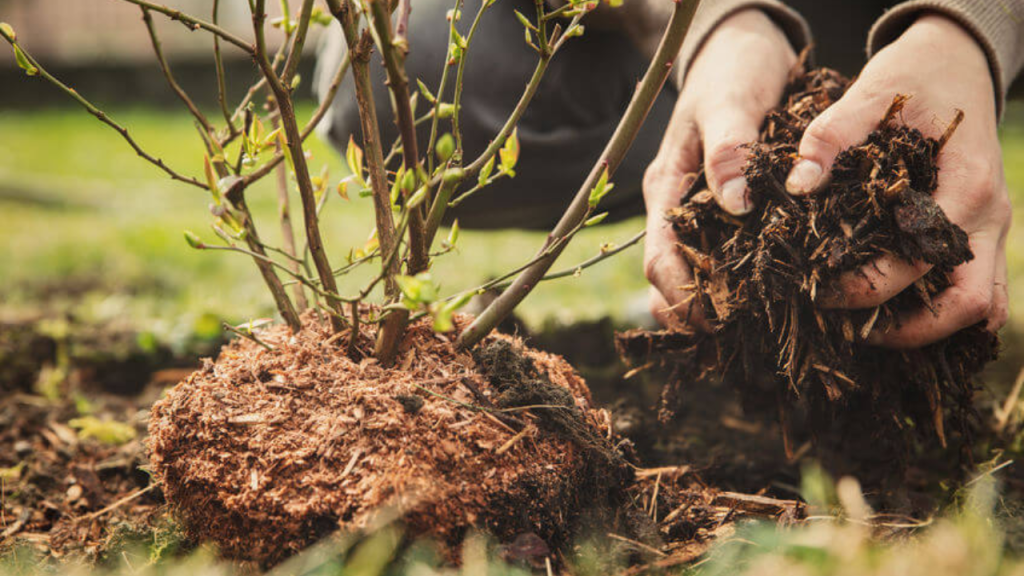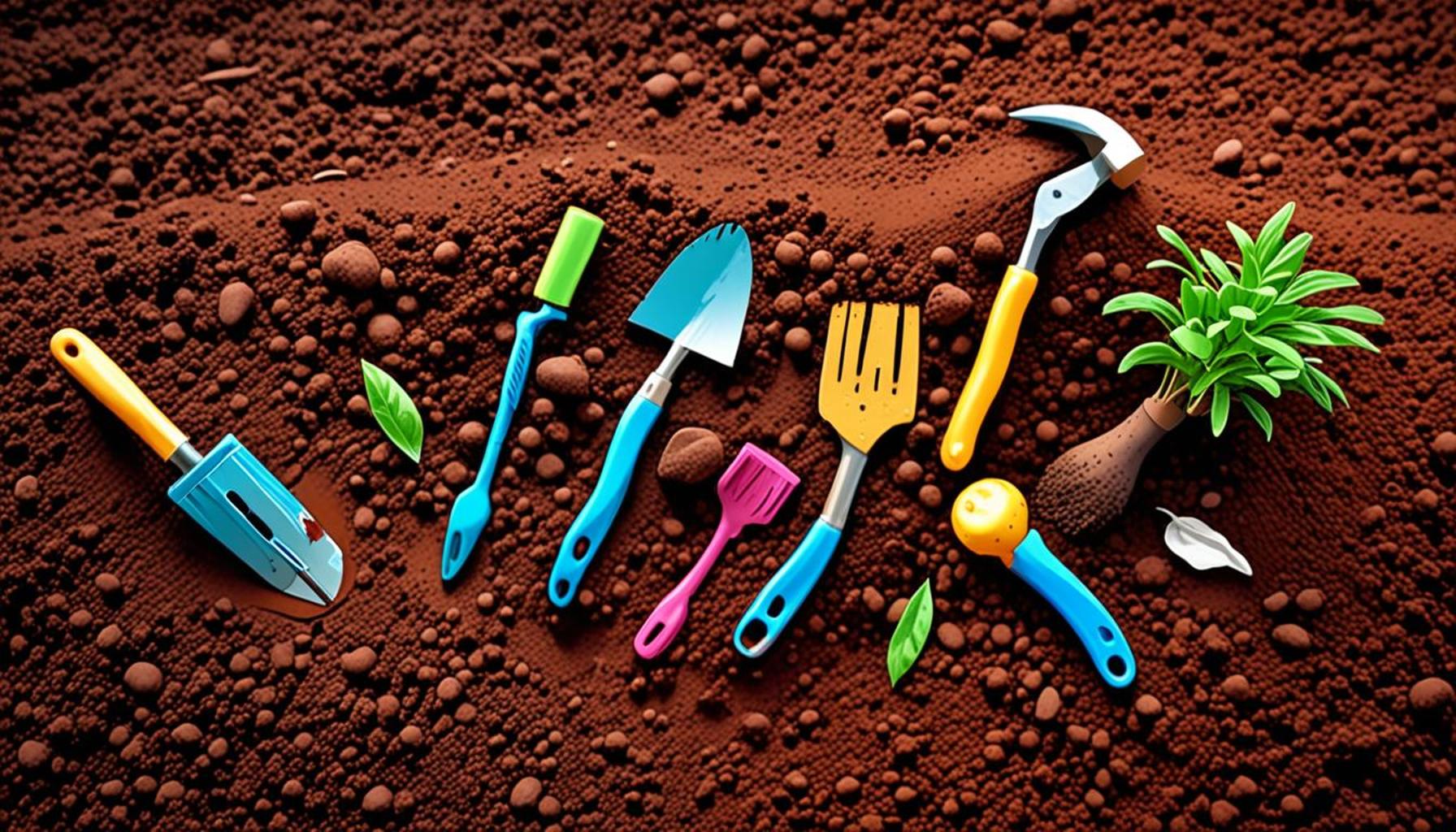The Benefits of Mulching: Enhancing Soil Structure and Moisture Retention

Uncovering the Multifaceted Benefits of Mulching
Mulching is often viewed merely as a tedious gardening task, yet its potential goes far beyond just aesthetics. This practice, increasingly embraced by homeowners and commercial landscapers across the United States, plays a vital role in sustainable gardening and landscape maintenance. By understanding the advantages that come with mulching, you can elevate your garden’s health and functionality.
Why should you consider adding mulch to your gardening routine? Here are some compelling benefits:
- Improves soil structure: The application of mulch can significantly enhance the soil’s physical and chemical properties. With time, organic mulches such as shredded leaves or bark break down, enriching the soil with nutrients and improving its composition. This contributes to better aeration, allows for deeper root penetration, and fosters beneficial microbial activity, which is essential for thriving plants.
- Enhances moisture retention: One of the most immediate benefits of mulching is its ability to retain moisture in the soil. In the arid climate of the Southwest or during hot summer months across the country, mulch acts as a protective layer that reduces soil temperature and minimizes evaporation. For instance, using wood chips or straw around your vegetable garden can significantly decrease the frequency of watering, saving time and resources.
- Suppresses weed growth: Weeds are a formidable adversary in any garden, but a thick layer of mulch can be a game changer. By blocking sunlight from reaching weed seeds, mulch effectively hinders their growth. This not only reduces competition for nutrients and water but also lessens the time spent weeding, allowing you to focus on nurturing your prized plants instead.
The choice of mulch material—either organic or inorganic—can tailor your garden’s needs while enhancing its aesthetic appeal. Organic mulches such as straw, shredded leaves, or compost not only provide insulation to plant roots but also release nutrients as they decompose, contributing to soil health over time. On the other hand, inorganic options like rubber mulch or gravel create a modern aesthetic and require minimal upkeep, making them a suitable choice for contemporary gardens.
Moreover, mulching is not only beneficial for individual gardens; it has a ripple effect on the broader ecosystem. The practice supports local wildlife, contributes to soil conservation, and even helps mitigate urban heat effects, underscoring its role in promoting environmental sustainability. As you delve deeper into the importance of mulching, you are sure to discover innovative solutions to common gardening challenges, ultimately fostering a more thriving and vibrant garden.

DIVE DEEPER: Click here to discover essential tips
Transforming Your Garden with Mulching
The benefits of mulching extend beyond its immediate visual appeal; they reach deep into the core of your garden’s ecosystem. At its essence, mulching plays a pivotal role in enhancing soil structure and moisture retention, key factors that can dramatically influence plant health and growth. By manipulating your garden’s environment through the thoughtful application of mulch, you create a symbiotic relationship between soil, plants, and microorganisms.
When it comes to improving soil health, one of the most significant advantages of mulching is its ability to facilitate nutrient enrichment. Organic mulches like grass clippings, shredded bark, or compost not only protect the soil surface but also slowly decompose over time, releasing essential nutrients back into the ground. This process is vital for fostering a rich soil environment where plants can thrive. Studies show that gardens enriched with organic mulch can see up to a 30% increase in soil fertility compared to those without. This means healthier plants that are more resilient to pests and diseases.
Moreover, mulching significantly enhances soil structure. As organic materials decompose, they improve the physical characteristics of the soil by increasing its porosity. Good soil structure allows for better air circulation, which is essential for root development and overall plant vigor. The added organic matter binds soil particles together, creating aggregates that maintain soil stability and prevent erosion, particularly in areas prone to heavy rainfall or runoff.
In addition to enriching the soil, mulching plays a crucial role in moisture retention. For gardeners facing the challenges of drought or dry spells, this is arguably one of the most valuable benefits. A well-applied layer of mulch can reduce soil temperature fluctuations and drastically minimize evaporation. For instance, in regions such as the Southwest or areas with a Mediterranean climate, the right type of mulch can cut down watering needs by up to 50%. This not only saves you time and effort but also conserves water—an increasingly important factor in sustainable gardening.
Another critical advantage of mulching is its natural ability to regulate soil temperature. In hot climates, mulch can keep the soil cooler, which is particularly beneficial for young plants and root systems that are sensitive to heat. Conversely, in colder months, a thick layer of mulch insulates the soil, preventing it from freezing too quickly and thus protecting your plants during winter.
In summary, the act of mulching enhances not only the physical structure of the soil but also its moisture retention capabilities. By enriching your soil with organic matter and preserving its moisture levels, you set the stage for a flourishing garden that attracts flora and fauna alike. As you explore the various aspects of mulching, you will uncover innovative practices that not only bolster your gardening efforts but also contribute to a more sustainable ecosystem.
The Importance of Mulching in Garden Health
Mulching not only enhances soil structure but also plays a crucial role in moisture retention. By reducing evaporation, mulch keeps the soil cooler and wetter, which is essential for plant health. When the soil retains moisture, plants can flourish without requiring constant watering, thus saving water and reducing garden maintenance. Various materials can be used for mulching, such as bark chips, straw, or even grass clippings, each offering unique benefits that cater to different gardening needs.
Types of Mulch and Their Benefits
Organic mulches, such as shredded leaves or wood chips, break down over time, enriching the soil with nutrients that feed your plants. This process not only improves soil fertility but also enhances microbial activity, which is vital for a healthy ecosystem. In contrast, inorganic mulches like gravel or landscape fabric serve as a barrier against weeds but do not contribute nutrients. Understanding the different types of mulch can help gardeners tailor their choices according to their specific challenges and goals.
Environmental Impact
Emphasizing the advantages of mulching goes beyond aesthetics or plant health—it also positively impacts the environment. Healthy soils contribute to water retention, reducing runoff and erosion. Furthermore, by using organic waste as mulch, gardeners can reduce landfill waste, showcasing a commitment to sustainability. The act of mulching can be a small yet significant step towards more sustainable gardening practices.
| Mulch Type | Benefits |
|---|---|
| Organic Mulch | Enhances soil fertility by breaking down and enriching the soil. |
| Inorganic Mulch | Controls weeds and helps retain moisture without adding nutrients. |
Maintaining Your Mulched Garden
Regular maintenance of your mulch layer is crucial for maximizing its benefits. Over time, organic mulch will decompose and require replenishment. Monitoring the thickness and condition of your mulch ensures that the soil remains protected from harsh weather conditions, weeds, and pests. Keeping mulch at an appropriate depth will also enhance its effectiveness in conserving soil moisture, allowing your garden to thrive.
DISCOVER MORE: Click here to enhance your gardening knowledge
Conserving Resources and Enhancing Biodiversity
While the benefits of mulching often focus on soil structure and moisture retention, its impact extends to resource conservation and biodiversity enhancement. Mulching acts as a natural barrier against weeds, significantly reducing the need for chemical herbicides, which can be harmful to the environment and local wildlife. A thick layer of mulch blocks sunlight, stunting weed growth and allowing your desired plants to flourish without competition. In fact, studies indicate that mulched garden beds can reduce weed presence by as much as 75%, leading to fewer labor hours spent on weeding and better overall plant health.
Additionally, mulching nourishes the soil microbiome, which plays a critical role in a garden’s health. Healthy soil is teeming with microorganisms, including bacteria, fungi, and protozoa that contribute to nutrient cycling and organic matter decomposition. The organic mulches you select provide these beneficial organisms with a food source, thereby promoting a thriving soil ecosystem. Research has shown that gardens with actively mulched areas exhibit higher levels of beneficial microbial activity compared to bare soil.
Encouraging Pollinators and Natural Predators
The strategic use of mulch also creates a habitat for pollinators and beneficial insects, which are vital to the success of many gardens. By fostering a rich environment of organic materials, mulch attracts earthworms, ladybugs, and other natural predators that help control pest populations. In turn, these predators feed on aphids and other harmful insects, providing a natural form of pest management that minimizes reliance on synthetic pesticides.
For instance, a garden rich in diverse plants and mulched areas can attract various butterfly species and bees, improving pollination rates for your crops and flowers. This biodiversity not only benefits crop yields but also creates a more balanced and sustainable ecosystem, enhancing the overall resilience of your garden.
Improving Carbon Sequestration and Soil Health
Mulching also plays a role in climate change mitigation through carbon sequestration. As organic mulches decompose, they store carbon in the soil, which not only improves soil health but can also help reduce greenhouse gases in the atmosphere. This process is increasingly recognized for its importance in combating climate change, as healthy soils can sequester significant amounts of carbon over time. Utilizing materials such as shredded leaves, straw, or wood chips, can turn your garden into a carbon sink while simultaneously enhancing productivity.
Moreover, mulching can lead to improved soil aggregation, which contributes to water infiltration and reduces surface runoff during heavy rains. This is especially critical in regions of the United States that experience hurricanes or heavy rains, as it helps minimize erosion and nutrient loss while maximizing water resources for the plants. The use of mulch can thus be a proactive step towards sustainable gardening practices that honor both environmental needs and gardening aspirations.
The diverse benefits that mulching brings—ranging from weed suppression and microbial enrichment to biodiversity enhancement and carbon sequestration—illustrate its integral role in creating a resilient and thriving garden ecosystem. By understanding and embracing these multifaceted advantages, gardeners can take informed steps towards cultivating an environment that promotes both personal enjoyment and environmental stewardship.
DISCOVER MORE: Click here to learn about choosing the right soil for your garden
Conclusion: The Multifaceted Advantages of Mulching
As we have explored, the practice of mulching offers an array of benefits that go beyond merely enhancing soil structure and moisture retention. By acting as a natural weed suppressor, mulching not only reduces the reliance on chemical herbicides, but also fosters a healthier garden ecosystem, promoting biodiversity that is so crucial to plant health and resilience. The nourishing of soil microorganisms through organic mulches contributes significantly to nutrient cycling, a key factor in maintaining productive soils.
Additionally, creating a hospitable environment for pollinators and pest-controlling insects underscores the vital role that multitudes of organisms play in sustaining a balanced garden. This increases crop yields while minimizing the use of synthetic pesticides, establishing a harmonious relationship between gardening practices and nature. Moreover, as the environment grapples with the effects of climate change, the carbon sequestration capabilities of organic mulches serve as a promising strategy for mitigating greenhouse gases while simultaneously enriching the soil.
In conclusion, embracing the practice of mulching is not simply about improving garden aesthetics; it emerges as an essential element in sustainable gardening. By recognizing the substantial impact of mulching on soil health, biodiversity, and resource conservation, gardeners can cultivate not only vibrant gardens but also contribute to the well-being of the environment. For those passionate about ecological stewardship, exploring the varied types of mulch available, from grass clippings to bark chips, and incorporating them into gardening routines could be a rewarding venture worth considering.


